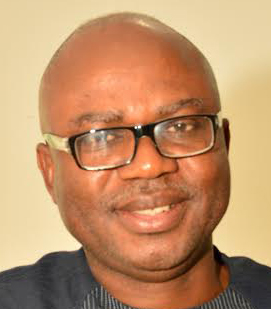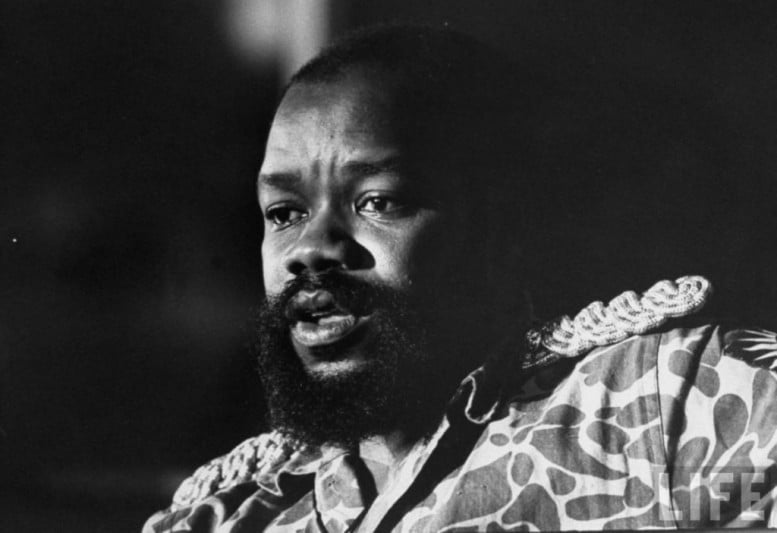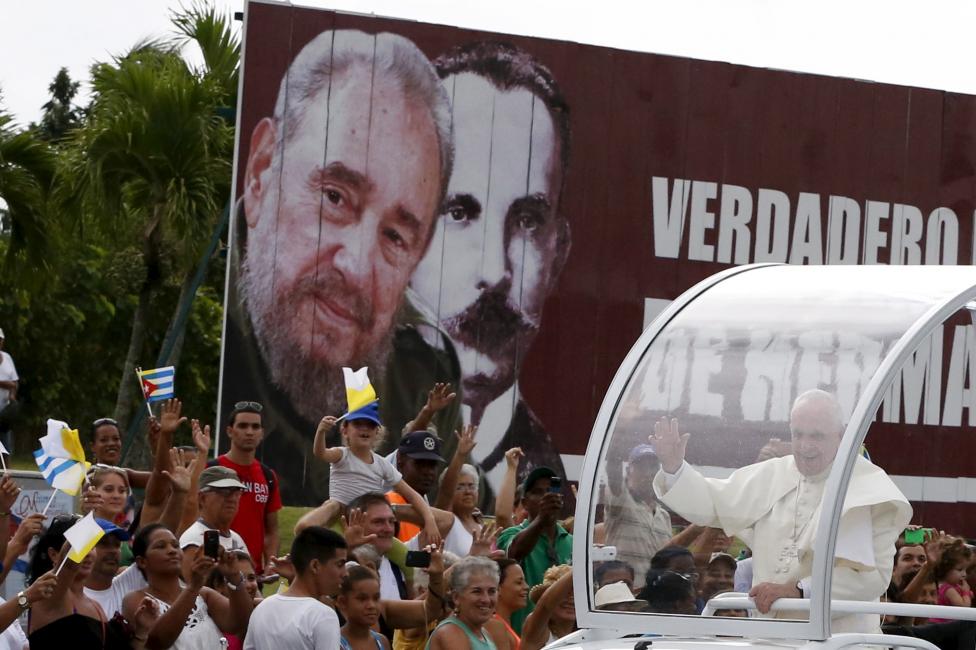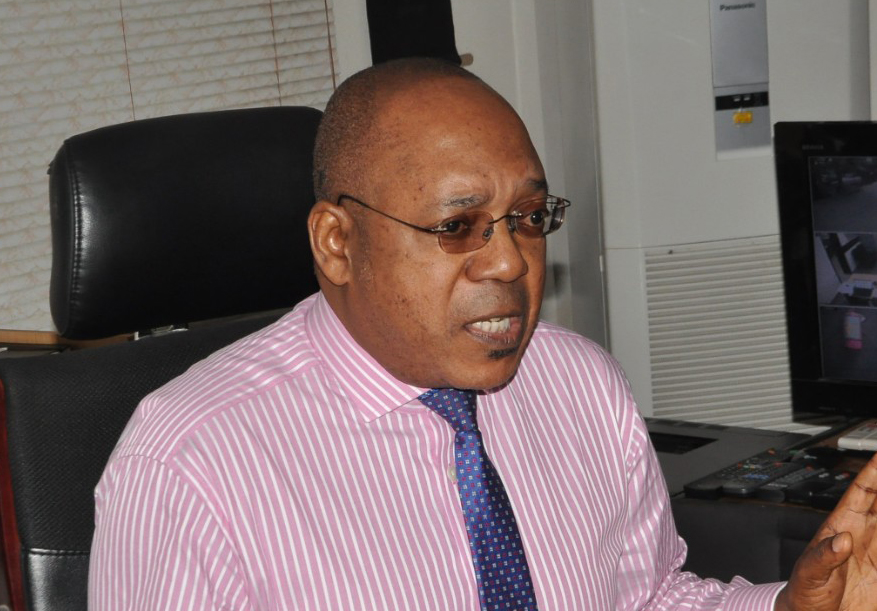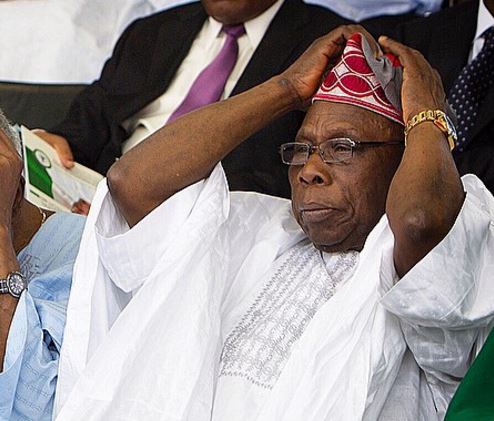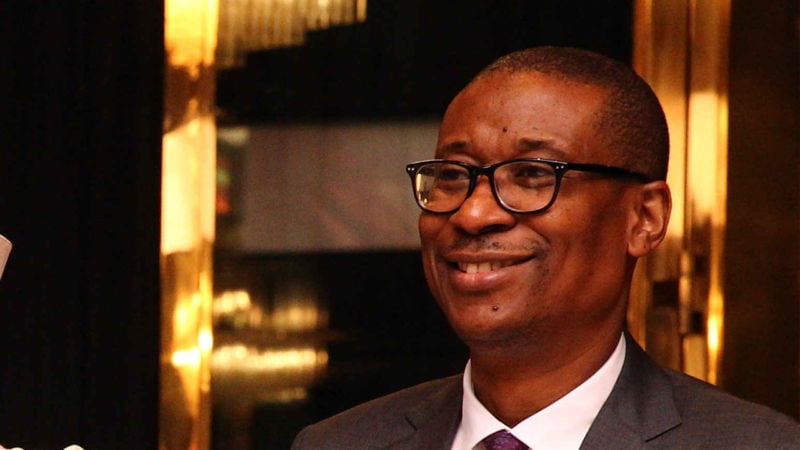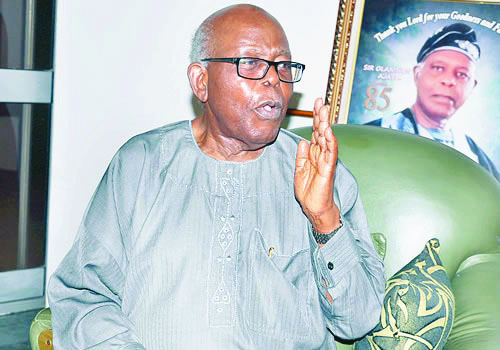Yesterday was the fifth anniversary of the passing of General Chukwuemeka Odumegwu Ojukwu (rtd) in London. Coincidentally, another revolutionary who fought for his people, Fidel Castro of Cuba, also died yesterday. Castro succeeded and ruled Cuba for 49 years until 2008. Ojukwu was stopped in three years, but the seed of his revolution has survived and borne fruit. For want of anything new to say about Ojukwu, I hereby republish extracts from the tribute I paid him almost five years ago:
One of the prominent titles conferred on Ojukwu on his return from exile in 1982 was Dike Di Ora Mma [The warrior loved by all]. It was an apt description of the visionary from the east who was born in the north and grew up in the west. Since his demise on November 26, I have waited to read and hear other people’s comments on the former Biafran leader but, so far, nobody has cast aspersions on him. I know that, in his lifetime, many feared him. But are they also afraid to speak now that he has joined his ancestors? Or could it be because African tradition forbids speaking ill of the dead? Not likely. Not every important Nigerian has received accolades after his death. Indeed, somebody once thanked God that a particular leader was dead and asked him to send the dead man to the hottest part of hell. And I am sure that, in future, the deaths of some former leaders will be celebrated in beer parlours and even in the media.
What I have discovered is the truth written by Shakespeare more than 400 years ago: Never envy any man until he has lived and died. It is after someone’s death that people speak the truth about him. In the case of Ojukwu, I have listened to rare eulogies. Everyone agrees he was a hero, a patriot, a human rights activist, a selfless leader, a statesman, and the man who saw tomorrow. I don’t see any reason he should be hated – except envy, the same reason many hate Ndigbo. Envy could make one hate anything and everything about another person.
In offering an objective analysis, we must eschew ethnic hatred that has ruined our country today. What was Ojukwu’s sin? He did not choose to be born by a wealthy father. His independent-mindedness was a virtue: after obtaining a master’s degree from Oxford University in the UK, he chose to chart his own course by joining the army, then reserved for dropouts and those who did not pass the Cambridge [or later GCE] exams. Likely, his academic achievements also attracted envy to him in the army.
Advertisement
He was not one of those that staged the Jan. 15, 1966, coup. In fact, he helped to abort it from Kano. When Gen. JTU Aguiyi-Ironsi (who also did not know about the coup) crushed the rebellion and took power, he appointed Ojukwu military governor of the Eastern Region. Ojukwu’s sin? Maybe he should not have accepted the appointment. Then, Ironsi was murdered six months after. Perhaps Ojukwu should have offered himself to be murdered too! He opposed Gowon’s ascension as head of state because he wanted the army to respect seniority. The mantle should have fallen on Brigadier Ogundipe, not Lt. Col. Yakubu Gowon who was Ojukwu’s junior.
The pogrom was intensified, leading to the massacre of hundreds of thousands whose only sin was that they were Igbo. [Of course, the Chukwuma Nzeogwu-led coup was hailed across the country until it was discovered that the coup plotters had been “selective” in the murders of political leaders. President Azikiwe was out of the country and Dr Michael Okpara was saved because of a visiting envoy from the Pope.] Perhaps Ojukwu should have surrendered all Igbo so they would be murdered. Or he should have supported the counter-coup during which Ironsi was assassinated.
The Oxford-trained historian was too civilised to harm innocent people. He was too refined to seek crude revenge. As military governor of an area that comprises more than nine states of Nigeria today, Ojukwu ensured that northerners residing in the east returned to the north unharmed. That wasn’t a sin, was it?
Advertisement
Then, the Aburi conference was held. Ojukwu waited for the federal side to keep the agreements reached at Aburi, Ghana, but was disappointed. Gowon and the rest denied everything on their return. Who to blame? I am still seeking a possible cogent reason to hate Ojukwu. Fifty years after Aburi, Nigerians are still agitating for a sovereign national conference. Maybe Ojukwu should have rebuffed his people when he was asked to declare the state of Biafra. Or maybe he should have abandoned his people and migrated to the side where he could have been murdered like his kinsmen.
Let us not forget, however, that the civil war was fought because of oil, not because of anybody’s love for Nigeria. Ojukwu never fought against Nigeria; he fought against injustice and barbarism. He was the quintessential servant leader who used his father’s wealth to defend his people when they were facing annihilation. Nor did he fight to kill his compatriots from the other side; he fought in self-defence. If he had been a coward and fought like today’s terrorists (who massacre innocent men, women and children in places of worship, markets and in their homes), perhaps, the war would have lasted longer. Even when the Soviets wanted to join the war if only Biafra would give them oil later, Ojukwu refused because he did not want Nigeria to become a theatre of war for the then superpowers. If he had, the civil war would not have ended the way it did: millions more would have been killed; more cities would have been destroyed; and Biafra would have survived. Perhaps, even those that claimed to be generals, patriots and statesmen after the war would not have survived it.
On a scale, therefore, Ojukwu is head and shoulders above his peers. At least, he never benefitted from government corruption like those who fought “to keep Nigeria one” and later stole Nigeria blind. They are the real enemies who fought against their fatherland, not Ikemba Nnewi. I need not remind anyone that, since the end of the civil war, corruption-induced poverty has killed more than 20 times the number of Nigerians that died in the civil war. Ordinary Nigerians know their true leaders. And Ojukwu was one – the best servant leader Nigeria never had.
Advertisement
Views expressed by contributors are strictly personal and not of TheCable.
